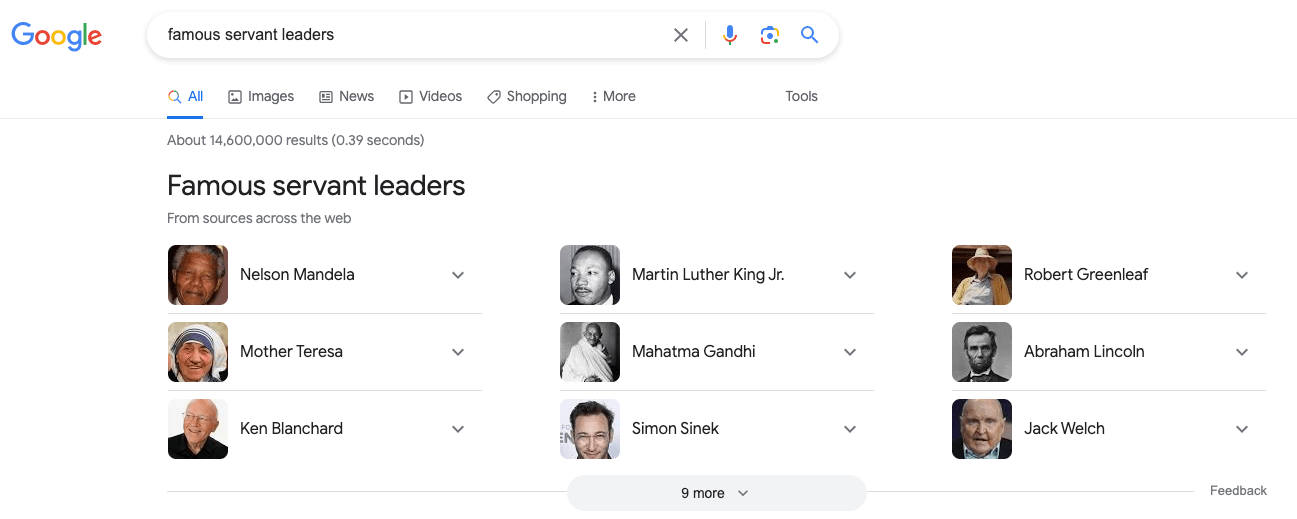Jack Welch Leadership Style: 10 Traits of Welch’s Leadership Approach
Jack Welch is an iconic leader of General Electric. He started his career in General Electric in 1960, as a junior chemical engineer and became the CEO from 1981 until 2001. Welch is on the great leaders list because his unique Jack Welch leadership style, wisdom, and visionary thinking led a bulb manufacturer to be a multinational conglomerate. We have explored Welch’s way of leadership and 10 traits in this article.
In this article
📌 Hint: Do not skip this article, you will find FREE Leadership Training resources throughout the article.
Why is Jack Welch an Iconic Leader?
John Francis Welch Jr. (November 19, 1935 – March 1, 2020) was an American business executive. He was Chairman and CEO of General Electric (GE) between 1981 and 2001. Welch is an iconic leader of General Electric. He started his career in General Electric in 1960, as a junior chemical engineer and became the CEO from 1981 until 2001.
Jack Welch is an iconic leader because his unique Jack Welch leadership style, wisdom, and visionary thinking turned a bulb manufacturer into a multinational conglomerate and one of the most valuable companies in the world. He joined the GE in 1960 and became the vice president and head of GE’s plastics division in eight years, in 1968. Considering reaching an executive-level position as early as eight years, he demonstrated outstanding leadership skills during the early years of his GE career.
Welch became the GE’s youngest chairman and CEO in 1981, when he was 46. Back in the 1980s, age and years in a profession were considered strong merit to hold a CEO chair. So, considering the 1980s, he demonstrated an outstanding success of being the youngest CEO of GE at that time. Welch’s first CEO leadership strategy was aggressive simplification and consolidation of the business. He led GE to become the number one or at most two in the industries that GE was operating.
Jack Welch leadership style increased the market value of the GE company from $12 billion to $410 billion when he retired in 2001. When we take into account the inflation, $12 billion in 1981 makes $36 billion in 2001. So, in terms of real valuation, he increased the value of the company from $36 billion to $410 billion, with a massive %1,039 increase. He managed over 600 acquisitions and focused on emerging markets where the economic growth was higher than the developed markets.
Enhance Your Leadership Skills – Executive Leadership Training Program
San Francisco Business School offers an online, self-paced comprehensive executive leadership training program. You can consider enrolling in this program to improve your leadership skills.
Jack Welch Leadership Style – Surprise Visits and “Rank and Yank”
Welch was famous for his unexpected visits to GE’s plants and offices. He was aiming to see the usual routine of the offices and facilities rather than a “prepared for CEO” environment. This helped him to see the real facts behind the turning wheels.
Jack Welch is the founder of the Rank and Yank policy, later used by many HR leadership and companies. In the rank and yank system, employees are ranked and compared to each other. Stack ranking requires managers to rate subordinates in a hierarchy from top to bottom. Those at the bottom aren’t necessarily poor performers; they’re just ranked that way because, well, somebody has to be.
Jack Welch leadership style had a brutal sincerity. No matter the actual performance levels, he was firing the bottom 10% of the managers every year. Even though those 10% were better than the market average, his policy does not allow them to stay in the company. This created harsh competition in the company between managers and a fear of poor performance.
Not only that, but he also rewarded the top 20% of the managers with bonus payments, stock options, and other awards. Although it is not mentioned in many resources, his belief in rewards and penalties shows that he is a good believer in transactional leadership.
Welch believed in simplicity and lean management which is still applied by many companies. Back in the 1980s, companies were bureaucratic, with lots of processes, and hierarchical levels. Bureaucratic leadership was dominant in almost every traditional industry. Jack Welch leadership style was revolutionary in simplifying the business processes, removing the nine-layer management hierarchy at the GE at that time, reducing inventories, and improving the production processes. Later, he adopted Six Sigma philosophies for GE which led to tremendous success in market capitalization.
Free Online Leadership Skills Training Program
One of the requirements to be a good leader is to improve yourself continuously. The best way to do this is, to enhance your competence through training. Take a step ahead and jumpstart your leadership competence. Enroll in our 1-hour Free Leadership Training program.
Jack Welch Leadership Style as a Servant Leader
Although Jack Welch has shown the traits of different types of leadership, he is famous for his dominance in servant leadership. Even Google shows Welch in search results as one of the pioneers of Servant Leadership.

As a servant leader, you’re a “servant first” – before thinking of yourself, you focus on the needs of others, especially team members. You are aware of other people’s self-interests, give them the assistance they need to meet their business and personal goals, include them in decisions where appropriate, and build a sense of community within your team. This results in higher engagement, more integrity, and better relationships with team members and other stakeholders. It can also lead to increased innovation.
Jack Welch leadership style adopts the servant leadership characteristics as he is saying “Before you are a leader, success is all about growing yourself. When you become a leader, success is all about growing others.” His servant leadership transformed General Electric from a bulb manufacturer into a multinational corporation.
Servant leaders people often lead by example. They have high integrity, trust, and authenticity and they lead with generosity. Jack Welch leadership style was generous with rewards for the outperformers, however, he was brutal for the poor performers. His reward policies show a great example of servant leadership traits.
A servant leadership approach can foster a positive corporate culture, and it can create high morale among the team. Supporters of the servant leadership model suggest that it’s a good way to move ahead in a world where values are increasingly important, and where servant leaders can achieve power because of their values, ideals, and ethics. Jack Welch leadership style was phenomenal in creating a productive and positive corporate culture. He managed to achieve more productive results with fewer resources.
Watch the Servant Leader YouTube Video
We have a 10-minute Servant Leadership video on YouTube. You can watch it to learn more about Servant Leadership.
5 Traits of Jack Welch Leadership Style
There are several leadership skills that leaders have to show to their team. However, some of the leadership skills outshine each leader. Jack Welch leadership style possesses the following 5 main characteristics.
- Active-Listening.
- Empathy.
- Awareness.
- Persuasiveness.
- Commitment to the growth of people.
If you are aiming to be a servant leader like Jack Welch, you can follow his skills and practice them in your workplace over the long term.
1- Active Listening
People love being listened to. Many managers or executives do not give enough time to listen to their team members. However, if you do not listen to your members, you cannot understand their feelings. Therefore, active listening is at the top of the servant leadership principles.
Welch was a very good listener. While he was talking to people, he was not focusing on other things and giving his full attention to the speaker. He did not interrupt the speaker and give feedback after they completed their speech.
2- Empathy
The dictionary meaning of empathy is the ability to understand and share the feelings of another. Servant leaders are experts in ignoring their own emotions or views when they are approaching the cases. They favor the values, views, and emotions of others and in the end, they try to make a decision for the best of the entire team.
Jack Welch leadership style was showing empathy for all employees. For instance, when Welch came to the position, the stock option program was open to executives only. He made it available to almost 35% of the employees regardless of their hierarchical positions.
3- Self-Awareness
In short, self-awareness is knowing yourself. What are your strengths, and what are your weaknesses, are you calm, or are you quick-tempered? Several personal traits affect the leadership style of leaders.
Jack Welch was very well aware of himself, his emotions, and his moods. He knew how it can affect people so he tried to suppress his bad feelings or emotions when he was with his team.
You can become more self-aware by knowing your strengths and weaknesses and asking for other people’s feedback on them.
4- Persuasiveness
Professionals look for charisma, persuasion, and influence in their leaders. Charisma is described as a personal quality of presence or charm that others find compelling. Jack Welch leadership style demonstrated the characteristics of charismatic leadership.
Charismatic leaders combine charm, interpersonal connection, and persuasiveness to motivate others. Professionals seek charisma, persuasion, and influence leadership skills in their executives. These skills will help their business unit to overcome obstacles, communicate with other departments in the organization easily, and have a better performance in the end.
Servant leadership requires using persuasion – rather than hierarchical power – to motivate people to perform. Servant leaders seek consensus rather than compromise in group discussions. Otherwise, some members might not be happy with the decision.
Many courses, programs, or tools can help you improve your persuasion skills without hampering the other’s interests. Building an expert power is one of the best ways to increase your persuasiveness. Once people see you as an expert, they will be more likely to listen and follow you.
5- Commitment to the Growth of People
We’ve already mentioned above that servant leadership is all about thinking about your people and growing them. Therefore, commitment to the growth of the team members is one of the characteristics of servant leaders even if the people in your team may move on to other organizations. Jack Welch leadership style was very well aware of this.
Skilled resources perform better for sure. Jack Welch made sure that their teams got the best tools and training to perform their activities. The world is changing, so the needs of the team may change frequently. Servant leadership is required to assess the training needs of the team and plan activities to grow the competence of the team.
Summary of Jack Welch Leadership Style
Jack Welch is one of the phenomenal leaders who changed a business, inspired other leaders, and affected the lives of millions of people. Jack Welch leadership style focuses on the the traits of servant leadership.
While Welch was supporting employees, he expected high returns in turn. He was generous in rewarding the outperformers, however, he was brutal in firing the bottom 10% of performers in his teams. Welch was well known as an active listener, empathetic, self-aware, persuasive, and committed to the growth of the people. He is pointed out as the pioneer of servant leadership.

